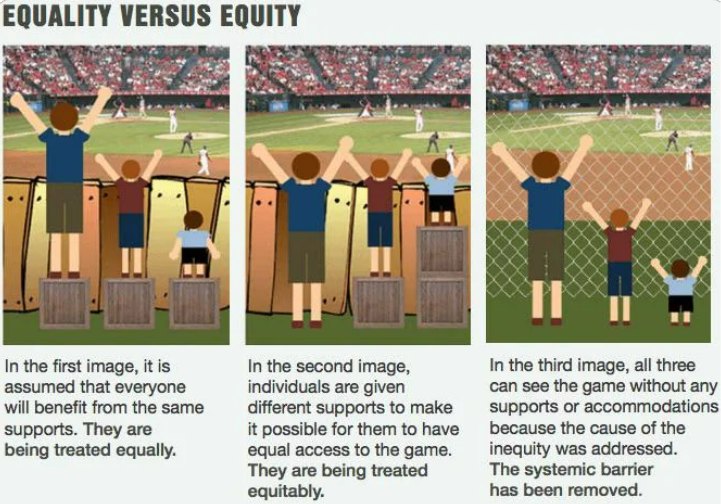
Equity goes beyond equality by recognizing that different individuals face different challenges. While equality provides the same resources to all, equity ensures that people receive the specific support they need to succeed. In supported accommodation, equity means providing tailored assistance to individuals who may experience additional barriers, such as, but not limited to people with disabilities, refugees, LGBTQ+ individuals, or those struggling with mental health conditions.
Equitable practices in supported housing may include:
- Ensuring wheelchair accessibility and disability-friendly accommodations
- Offering mental health and trauma-informed resources in the areas of our properties for additional support.
- Addressing gender-specific needs, such as safe housing/female only/self-contained accommodation for domestic abuse survivors
- Upholding policies and procedures that prevent adversity in diversity
Inclusion: Fostering a Sense of Belonging
Inclusion ensures that all individuals in supported accommodation feel respected, heard, and valued. A truly inclusive environment fosters a sense of belonging, which is essential for individuals rebuilding their lives after homelessness.
As social housing providers and dealing with individuals with complex needs such as schizophrenia, mental health disorders or antisocial behaviours, we occassionally have to intervene in cases of conflict between flatmates, it is our responsibility to ensure that all parties involved can speak to us without receiving any judgement, and we can then report back issues to the council for decision-making or potential intervention.
Creating an inclusive space involves:
- Encouraging resident participation in feedback and conflict resolution
- Providing training to staff and advocating for participation of DEI workshops, webinars and relevant resources available
- Establishing clear anti-discrimination policies
Committing to DEI
Diversity, equity, and inclusion are not just ideals but essential components of effective social housing. By committing to DEI, accommodation providers can create environments where all individuals—regardless of their background—receive the support and respect they deserve. This commitment ultimately leads to more successful outcomes, helping residents rebuild their lives with dignity and hope.